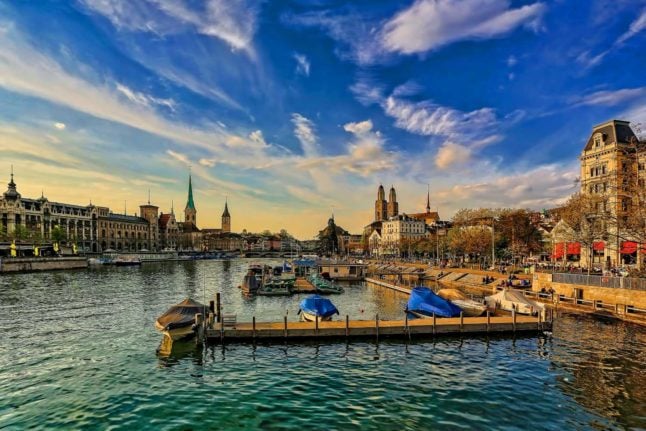Three of the top ten most expensive cities in the world for expats are in Switzerland – and the only other European city in the top 20 is London, at 19th.
Zurich (fourth), Bern (eighth) and Geneva (ninth) sit alongside a number of Asian cities, as well as a handful of cities from the United States.
The most expensive city in the world for expats is Hong Kong, while Ashgabat in Turkmenistan and Tokyo in Japan round out the top three.
Cost of living
The research project was put out by American consulting firm Mercer, who looked at various metrics to determine cost of living for expatriates in cities across the world.
Currency fluctuations, costs for food, housing, transportation, entertainment, clothing and household goods are all taken into account.

Geneva. Photo by Will Truettner on Unsplash
An expensive island in the middle of Europe?
While residents and visitors have for a long time understood how expensive Switzerland is, it might still be surprising that only one other European city – London – makes it into the top 20.
Other expensive expat hubs like Paris, Barcelona, Amsterdam, Brussels, Milan and Frankfurt feature nowhere near the top places.
A major reason for this is the coronavirus crisis – and the strength of certain currencies against others.
The Swiss franc, already one of the world’s strongest currencies, meant that Swiss cities stayed near the top of the list while other European cities fell away.
Zurich rose one spot from fifth last year, while Bern and Geneva rose four spots from 12th and 13th respectively.
On the other hand, Milan (47th), Paris (50th) and Frankfurt (76th) were nowhere near the top.
Other currencies to emerge strongly out of the coronavirus crisis were the US dollar and the British pound, which drove New York from ninth to sixth on the list and London from 23rd to 19th on the list respectively.
Covid and climate the major issues
The researchers said the challenges for city administrators was to ensure stability despite uncertain times. This was particularly the case with regard to two major current challenges – climate change and Covid-19.
“Border closings, flight interruptions, mandatory confinements, and other short-term disruptions have affected not only the cost of goods and services, but also the quality of living of assignees” said Ilya Bonic, President and Head of Strategy at Mercer.
This focus on stability is another reason for why Switzerland continued to accrue such a high cost-of-living score.
“Climate change, issues related to environmental footprint, and health system challenges have pushed multinationals to consider how a city’s efforts around sustainability can impact the living conditions for their expatriate workers.”
“Cities with a strong sustainability focus can greatly improve living standards, which can in turn improve employee well-being and engagement.”
Top ten most expensive cities for expats
1. Hong Kong
2. Ashgabat
3. Tokyo
4. Zurich
5. Singapore
6. New York City
7. Shanghai
8. Bern
9. Geneva
10. Beijing



 Please whitelist us to continue reading.
Please whitelist us to continue reading.
Member comments